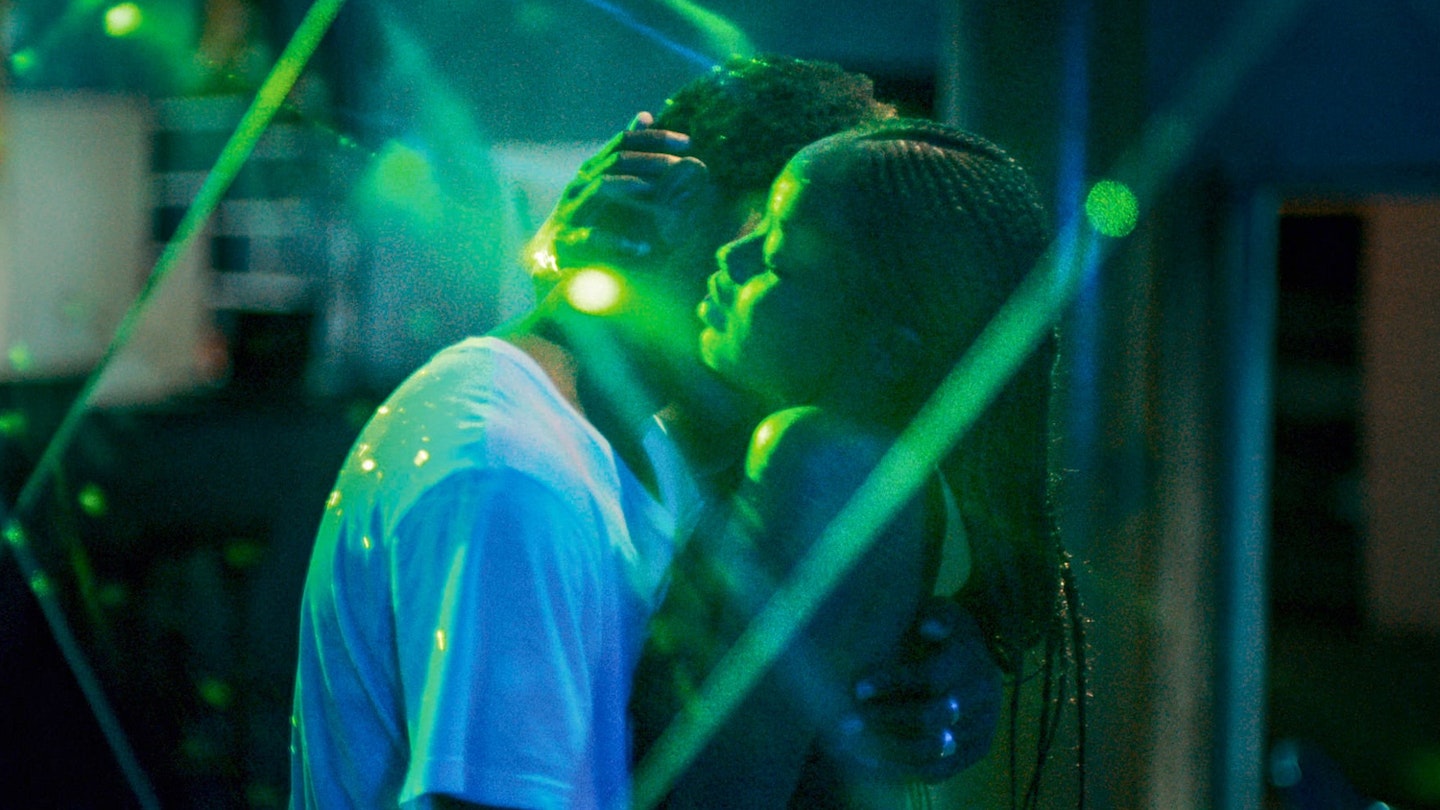French director Mati Diop's genre-defying first feature is about the migrant crisis and the shaping influence of first love. What begins as a slice of social realism morphs into a crime mystery and ends up as a story of supernatural justice.

Teenagers Souleiman (Traoré) and Ada (Sana) are in love, yet Ada is to be married to Omar (Babacar Sylla), whose chief charm is that he is rich. Souleiman and Ada rendezvous in secret at the local nightclub. In the immediate aftermath of deciding to go to sea, Souleiman has a chance sighting of Ada. They gaze at each from opposite sides of the road, catching flashes of each other in between large vehicles passing. He wants to linger, but she is anxious to get home — oblivious to the fact that when she heads out to meet him later, he will be gone. Diop delivers in this opening sequence an impression of love so searingly romantic that it creates a plausible motor for the rest of the film in all its shape-shifting glory.
A criminal act on Ada's wedding night draws the involvement of a police-officer who is also investigating complaints by the construction mogul that a group of girls broke into his property. Supernatural elements are fed in matter-of-factly, with Diop harnessing them as instruments of divine justice, rather than to create horror spectacle. Meanwhile Ada believes that Souleiman is still alive, even though the men are missing at sea. The Atlantic ocean is filmed hypnotically by cinematographer Claire Mathon, it twinkling like a sea of diamonds, mesmerising and beautiful. Yet it is a mass graveyard.
Fatima Al Qadiri's beguiling score works with these images to create a heightened atmosphere, and there is a lot of pressure on the film's climax to synthesise its multiple focuses. While sweet – in contrast with the ambience already in motion – this ending is muted. Yet so strikingly original is Diop's use of genre that this scarcely matters.
